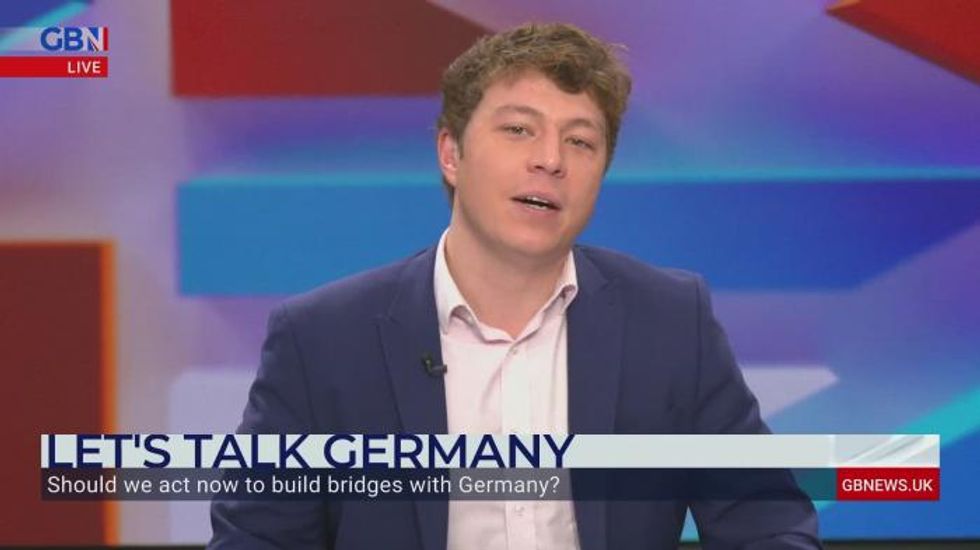Don't Miss
Most Read
Trending on GB News
We have come to regard Germany as the adult in the room when it comes to European politics.
Providing almost a quarter of the GDP of the entire EU as the world’s fourth largest economy, it is renowned for being a steady pair of hands and the anchor of the continent.
Yet Germany’s might was not always a good thing, was it?
Do I need to mention two world wars?
It is strange to think that it was as recently as 1990 that The Hoff parked his talking car, covered up his dad bod and performed atop the Berlin wall with a pretty cringeworthy song that inexplicably spent eight weeks at number 1 in West Germany with records smuggled into the Moscow-backed regime in the East as a form of protest.
Since then, a reunited Germany has dominated the EU, with some cynics pointing out that having fought to prevent a German-controlled Europe at the cost of millions of lives, the continent instead got a German-controlled supranational bloc at the cost of a million paper cuts instead.
Interest rates for the Euro have long been tethered to Berlin, creating a rollercoaster ride for smaller member states as mere passengers.
The big Cold War question posed by Kissinger of 'who do I call if I want to speak to Europe?' was finally answered: Angela Merkel.
Indeed she was Biden’s pick for his first international natter after being elected President, then snubbed him for a break at her weekend home to make potato soup and beef loaf.
But soon, calling the most powerful woman in the world will result in a protracted dial tone, as the former chemist, famed for only needing four hours sleep and approaching politics with laboriously considered technicality, is hanging up her dirndl to leave Germany to wonder what Leben Nach Mutti - life after mother, might look like.
Perhaps it’s something we should all be wondering.
For Merkel has wielded the ability to change the face of politics for an entire continent.
Stating all refugees are welcome, Merkel invited a mass exodus of migrants to head across the continent in search of a better life, with those rebuffed at every state along the way now crowding into dinghies to cross the channel.
While President Macron puffs up his chest and stands on tippy toes to proclaim himself the pin up of the European project, one calculated sigh from Merkel would cause all Gallic ambition to be muffled into a pathetic whimper.
And when it came to Brexit, Frau Merkel showed all the tenderness of a Victorian Headmistress, proffering the cane at every whispered suggestion of deviating from the Gordian knot of rules and regulations that bind together the technocratic behemoth of the EU.
Having dealt with five UK Prime Ministers, four French Presidents, seven Italian leaders and four American commanders in chief, she was an immovable, unflappable fixture in Global Politics.
Yet her party has just received the worst election results in its history, leaving in its wake what will become months of prickly negotiations to form a coalition government under Germany’s complex system of representation, and having followed decades of resolute centrism, could now see this giant of a country veer to the left, sending ripples of after effects across the EU, across Europe and indeed across the world.
Growing up in Eastern Europe where she was headhunted by the Stasi, whom she refused to join under the accurate foresight that it would stymie her future political ambitions, she was perhaps more comfortable with China and Russia than many of her peers liked.
Yet her likely successor Olaf Scholz champions a far more domestically-focused agenda, posing the question of whether the next Chancellor will be Europe’s de facto leader.
Yet it is rumoured Scholz sees strong bilateral ties between with an independent UK to be key to European stability, potentially ushering in a new era in Anglo-German relations.
From a stable, perhaps all-too-predictable status quo to a bold new future? Or more of the same?
Either way, the direction Berlin now takes will affect us all.
Today, we really need to talk about Germany.











